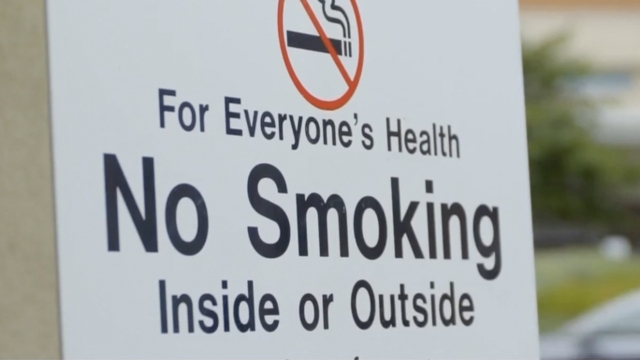New data from the American Lung Association shows an increase in survival rates for lung cancer patients — jumping 22% over the last five years. The survival rate is now 26%.
Christy Fisher says she's blessed to be one of them, describing her initial symptoms to Scripps News.
"Chest pain, back pain, coughing, wheezing, being tired," said Fisher.
Fisher, who described herself as athletic and a non-smoker, was surprised to hear the words: stage 4 lung cancer. She was given a 2% chance of survival.
"I immediately went into, 'I have a 2% chance of living. I am not going to pay attention to the fact that I also have a 98% chance of dying,'" Fisher recalled.
The cancer returned 3 more times — Fisher beating the odds each time. Her treatments varied over the years, with chemotherapy, surgery and immunotherapy.
"I didn't want that (the cancer) to become who I was. As I go through being sick now for 17 years and dealing with it a lot for 17 years, I only think about the fact that I have lung cancer when I have to," she said.
Experts says the new success rates can be attributed to less smoking, new guidelines lowering the age for screening, and more treatment options.
"Now we have all of these targeted therapies that allow us to specifically target a mutation that is seen in an individual's cancer. And we're also able to use immunotherapy, which is a way that we allow the patient's own immune system to attack their disease," said Dr. Andrea McKee, a volunteer spokesperson for the American Lung Association.
While survival rates have also increased, the disparities remain; with people of color less likely to be diagnosed early and less likely to receive treatment.
Filmmaker Lincoln Mondy says beyond inequities, there's the tobacco industry.
"Around 8 out of 10 African American smokers, that's men and women, who smoke menthol," Mondy began.
"Obama's administration outlawed every single flavor that was allowed in cigarettes except menthol. And that was because the tobacco industry smartly lobbied to get menthol taken out of the bill," he explained.
Menthol cigarettes, which are harder to quit, flooded Black communities and were embedded in the culture for decades.
His documentary, "Black Lives, Black Lungs," explores the early marketing tactics.
"They gave out free Newports in Detroit, Chicago and New York. They had the Kool Jazz Festival — this like jazz festival in Detroit that was sponsored by KOOL," said Mondy.
There are renewed efforts to ban menthol across the country, which the FDA says could save up to 238,000 African American lives over 40 years. Dr. McKee and the American Lung Association applaud the efforts.
She also says the key to getting ahead of the disease in all groups is earlier screening and increased access.
"We will save tens of thousands of lives every year if we can get the people who are eligible for screening into screening programs across the U.S.," she said.
And while lung cancer remains the deadliest form of the disease, researchers say early diagnoses and targeted legislation to expand access could be the keys to a longer, healthier life.


